- Home
- Fay Weldon
The Heart of the Country Page 15
The Heart of the Country Read online
Page 15
It was Natalie’s idea that they go and seal their bargain – that is, her body for his flat – up on the tussocky grass at the foot of the Mendip Mast.
‘Why there? It’ll be cold.’ He’d had in his mind a rather nice little furnished cottage near Crosscombe, of which he had the key. The tenants had been gone only a couple of days, so it should still be warm and cosy.
‘There’s a moon,’ she said. ‘And anyway it just feels right.’
She didn’t suggest Glastonbury Tor, did she? Though the grass there is just as tussocky and smooth. She knew well enough she’d be struck dead for unrighteousness, for confusing sex with a business arrangement. Her instinct was right. The broadcast messages radiating out from the Mendip Mast – Songs for Swinging Lovers and the EastEnders and the stock market prices – have somehow got into the landscape round the Mast, which was well-suited to the occasion: an uneasy mixture of sentiment, worldliness and greed.
Angus was right, too. It was cold and uncomfortable at the foot of the Mast; the sense of electronic humming and buzzing all around and Natalie’s goose pimples and little cries, caused not by him but by gravel and stones against bare skin, made the occasion less than satisfactory. Nevertheless it was a start; it felt like an affair beginning – not beginnings climaxing and ending all at once. Natalie bruised easily. She talked while she made love: she practically chattered. He liked that. Jean never made a sound.
‘You do talk a lot,’ he said, when he was driving her back to Sonia’s. Natalie was extracting a piece of gravel out of her leg. She had not bothered to put her tights back on.
‘I think what it is; you really like me. You pretend you’re doing this because you have to, but really you want to.’
She just laughed, and gave a little yelp as she finally squeezed the gravel from her leg.
‘Am I better than Arthur?’ He wanted to be.
‘Everyone’s different,’ she said, declining to gratify him. But he was: or perhaps they both were, together. Natalie had her own theories on sexual attraction. She told me about them when I went to visit her later in her love nest in Wells; she spoke with the kind of irritating authority women have when they’re in the middle of some swinging affair, and are speaking to friends less blissfully (or so they see it) situated. With Harry, she told me, sex had been frequent at first, and then dutiful: a matter of proximity and cleansing rituals. A lot of toothbrushing, and armpit washing before and after. In its way it had been exciting, because the need for hygiene had made the act seem dirtier: and the emotional distance between them the greater, inasmuch as how could the Harry of his orderly, conventional days be related to the Harry of his silent, sinful nights?
Arthur? Arthur made her feel wicked, not dirty. She’d stand in the back room of the shop in broad daylight dressed only in a slip. He’d take it off her, staying fully dressed himself. He hardly bothered to take his trousers off. She did what he said. There was a kind of languorousness about it she loved. I know the feeling. It’s what I had with Alec, only more so. Meet me here, he said. You do. Meet me there. You do. Who cares who’s watching? Do this, say that, feel this, think that, open your legs. You do. It’s insensate, hopeless love – it’s a disease. It’s caught from other people, just like measles. It passes, like the measles, but sometimes, in the meanwhile, damage is done. (Measles may be a childish disease but it can blind you, deafen you, kill you, too, in the passing.) You’re as much in control of yourself while it lasts as if you’re running a temperature of 105. You lie down, toss and turn, burn and freeze, moan and groan – pity is needed, not reproach. Pity and a cure. Natalie was infected by Arthur. Harry leaving had been her cure. Instantaneous. It shocked her back to sanity. Next time she saw Arthur she couldn’t remember what it had all been about – perhaps because actually the sexual satisfaction had been minimal; she needed the act like an addict mainlining to stop the distress, rather than get a high.
And Angus? Well, that worked, Natalie said, because he made some kind of connection between her and her body that Harry hadn’t, and Arthur hadn’t. She wasn’t afraid of him, as she had been of the other two: she half despised him and half liked him. She hoped for nothing, she thought the situation was ridiculous, she enjoyed herself because she could see she might as well. She looked forward to her new flat and knew it was hers as long as she wanted it: and it gave Angus so much pleasure to plunge around inside her she couldn’t help liking it too. It didn’t sound to me like true love but it sounded okay.
When she got back to my house, all flushed good humour, I had a shock waiting for her. Oh yes. I was waiting up to deliver it.
‘Natalie,’ I said. ‘You had a visitor when you were out. Did you have a good time?’
‘I’m sorry, Sonia,’ she said (smug bitch!). ‘But yes I did have a really good time. Who was the visitor?’
‘Your husband.’
That got to her. Colour drained from her face – all that endearing pinkness – and she looked like the quarry drudge once again, the Natalie I knew and loved.
‘What did he want?’
‘He wants the children to go and live with him in Spain.’
Well, that’s what he’d said. He hadn’t said anything about wanting her back: on the contrary. He didn’t look guilty or distressed. He’d looked prosperous and healthy, if furtive. Knocking on my door after dark, frightening me out of my wits! Ben and Alice were both sleeping on mattresses upstairs. He’d gone up to look at them. I asked him not to wake them, and he didn’t. But he’d seemed shocked to see them on the floor.
‘She’s not fit to look after them!’ he said, and then, ‘Is it just you and your husband?’
‘Just me,’ I said.
‘Just you and her!’ he said, with meaning. And then, ‘Tell her I want the kids. Tell her I’ll be in touch. Out on the town, I suppose! I must have been mad to think I’d find her in.’
He wanted it both ways, I could tell. He wanted his abandoned wife to be not only a lesbian but also a heterosexual nympho. In other words he didn’t like her very much. He’d walked out, and she was taking the blame for it. He didn’t seem a particularly pleasant person to me. I told him he was polluting my house and asked him to go, which he did. Miss Eddon Gurney 1978 was waiting for him in the car outside. I caught a glimpse of her as I slammed the door. ‘Poor old Nat’, I’d thought, along with ‘serve her right’.
‘He can’t have them,’ Natalie said. ‘He can’t have the children. I won’t let him.’
Hi, Dad!
Sonia helped Natalie and the children move into the love nest. Sonia was a good sort before she became a murderer. Sonia gritted her teeth and put up with her own disappointment, and the prospect of loneliness once again. You can be lonelier with three small children than without them. It’s something to do with the burden of perpetually looking after, never being looked after. Sometimes, it’s true, Bess would make Sonia a cup of tea, and Sonia would have to try not to cry, from the sheer relief of it. (Okay, self-pity. Long sad notes on the violin, and so there should be. Poor bloody Sonia, say I. She had a raw rough deal. She got mixed up with bad bad men: the kind who destroy with smiles and self-righteousness, so you don’t know you’re under attack until it’s too late.)
Sonia consoled Natalie by telling her that in a time of low female employment and low female wages (same thing) an ordinary woman had these alternatives: she could live off the State or live off men. She could not take the middle way and live off her wages. Natalie had tried that, hadn’t she, and failed. So now she was the auctioneer’s paramour.
Sonia suggested most forcibly to Natalie that she let the children go with their father. What sort of life could Natalie offer them? What sort of future did they have in this worn-out, sold-up, clapped-out country? Not even a change of government could save it now. Too late! Drug addiction, cancer, suicide all epidemic amongst the young! At least their father had a swimming pool.
Oh, but Natalie was stubborn.
‘My children have got me,’ she said.
‘I’ll work for them. I’ll see them through.’
‘You can’t,’ said Sonia brutally. ‘There’s nothing here for the young. Look what they’ve made of us! A nation of whores and criminals. I cheated on the bus on the way up here. I got away with someone’s thrown-away ticket. I’m a criminal, you’re a whore.’
‘I prefer the word paramour,’ said Natalie, primly.
Angus came up to the flat two or three times a week. Jean knew all about it.
‘Can’t you even park your flash car discreetly?’ was all she asked. ‘Does it have to be right outside her door? Everyone knows. It’s “Oh Jean, saw your husband’s car in Wells’ market again: Oh Jean, I thought you ought to know.”’ Jean slept soundly enough on her side of the hard orthopaedic mattress, in spite of her protests. Angus thought if she lost no sleep over it he could be doing her little harm. Sex with Natalie made him want sex with Jean, but if he approached her she’d shrug him off saying he was too old and fat to be the great lover, and please not to paw her about, for God’s sake. She was tired and had work to do. Angus thought perhaps he might ask her for a divorce, but he feared her tongue if he broached the matter. He didn’t like the way Alice and Ben looked at him, either. Alice stared reproachfully with her wide blue eyes, so like her mother’s, and Ben with a steely hostility as if he, Angus, was a debtor, and Ben the creditor. And they would quite deliberately make holes in the carpet with the toes of their shoes. Luxury flats were not really suitable for children: the carpets might look thick and rich but in fact were flimsy, and the same went for the rest of the furniture. Only the bed was solid, soft and fine: just about double enough. Sometimes, they ended up on the floor; but with her stifling her laughter, her moans, for the children’s sake. One way and another, Angus agreed with me that the children ought to go, before Harry changed his mind.
‘But he’s a criminal,’ Natalie would protest. ‘And they’re all I’ve got.’
‘You’ve got me!’
‘We want to go,’ the children said. That was a shock. Ingratitude! Alice would come home crying from school, Ben would return sulky and bruised. Alice stole sweets from Woolworths (Alice, stealing!), and Ben’s homework was never marked because of the teachers’ strike.
‘I’ll never get any GCSE’s at this rate,’ he said. ‘I’ll work in a factory all my life. Well, that’s what you want! That’s your ambition for me!’
‘I don’t,’ she’d protest.
‘You do,’ he’d say, bitterly. ‘You hate me because I’m my father’s son.’
Oh yes, oh yes, Ben and Alice wanted to go all right. Here was Daddy, offering a villa on the Spanish coast, complete with swimming pool, money, sun and status – he sent them letters and photographs, and also once an appalling little note on scented paper from the beauty queen, saying she knew she could never take their mother’s place but she wanted to be their friend. And what could Natalie offer her children? The prospect of living in a holiday flat in Wells that lasted as long as their mother’s relationship with a married man, and consequent nudges and giggles at a school they hated. Of course they wanted to go. Wouldn’t you? Look at it their way. Their mother had driven their father, by her unfaithfulness, into the arms of another; had discouraged him so that his business failed; had given away the family dog; had let the family car be repossessed – and what else? Oh yes, had disgraced them by working up at the quarry, by living off the State; had made them sleep on mattresses on the floor and taken them out of a school where they were happy and put them in one where they were miserable, to be laughed at by thicks and turnip tops. No, Ben and Alice were not pleased by their mother. Some children (not all) find themselves extremely offended by parental misfortune.
The only problem to my mind was, in the end, why did Harry Harris want them? Ungrateful little brats.
In the end Harry won and the children went. Natalie let them go. They cried when they hugged her goodbye. They left from Bristol Airport. Angus drove them there in the Audi Quattro, and they kept putting down the electric windows on the way so the upholstery got spattered with rain. They knew that life was a fight, and they meant to win it: they would swim forever in their father’s swimming pool – he who knew how to enjoy himself and how to get out of debt quick. Angus spent all that Saturday night in bed with Natalie and most of Sunday too, and did not have to pretend to be just another visitor. He no longer blamed Jean for not having given him children. Natalie wept and mourned and raged a little, but in an agreeably sensuous manner. She needed comfort and he gave it to her.
Interims
And that’s how it happened that between March and mid-October Natalie lost a husband, a home and her children, and gained a flat in Wells and a lover from Eddon Gurney. That’s how it happened that, by the end of October, Natalie was earning one hundred and twenty pounds a week working on the WAEADA carnival float in the big barn adjoining the Avon Farmers’ depot. She’d struck up quite a friendship with Flora’s Bernard. She would paint and hammer and upholster and he’d filch paint remover from his shelves so she could clean her hands, and tools to make her life easier. The advantage of an organization like Avon Farmers is that they don’t account too carefully. They rake in the money without too much fuss. Bernard would bring her his worries, along with their wares. She was an older woman, but not so old he didn’t enjoy her company.
‘Do you think I should walk out of this job?’ Bernard asked Natalie one day. Her mouth was full of upholstery tacks. She was making a swan-shaped stool in white velour, on which Mrs Housewife Princess was to sit. ‘And not just wait till it happens?’
‘Why in particular?’
‘New Wonder Bio-Eater. Sounds like a soap powder but it isn’t. Mix with water, one part to twenty, allow five minutes to work. Twenty millilitres makes 250 gallons. Must be quite strong, don’t you think?’
‘They wouldn’t allow it if it wasn’t safe,’ said Natalie piously. Everything I told her about the world had just passed in and out of her head. She was doing nicely, thank you. She’d got her freedom and her youth back; she was earning well: she was having a riotous sex life and not caring one whit about her lover’s wife. She was never one to think very far beyond her own interests. ‘Bio-eaters eat antibiotics. Farmers give penicillin to sick cows. The sick cows give milk. The milk’s full of penicillin. The Milk Marketing Board tests for it. If they find any in the tanker they send it back, won’t pay for it. But with new wonder Bio-eater – in goes the milk into the tanker, in goes a spoonful of Bio-eater, and five minutes later – everyone’s happy. The cow, the farmer and the MMB.’
Natalie thought a little.
‘But mightn’t that be bad for the person who drinks the milk?’
‘Farmers don’t drink milk,’ said Bernard, ‘that’s all I know.’
‘If you don’t do this job,’ said Natalie, ‘someone else will.’
‘You mean let them get nerve poisoning,’ said Bernard, ‘not me. Take a look. Are my hands trembling?’
He held them out for her inspection, and they were indeed trembling. She took them in her own to steady them. ‘Just nerves,’ she said, and then rather hastily let his hands go. If it hadn’t been for Flora, if it hadn’t been for Angus, both reckoned they’d have gone off in the bushes together sooner or later, but neither said anything to the other about that. The sun shone, birds sang (a few), farmers came and went, and paid Bernard over the odds for his trouble, heaving the dusty sacks as he did onto their trucks, and he put off handing in his notice for another week, and Natalie sang as she hammered. That’s what a little response from the other sex will do. Or from the same sex, come to that.
Arthur came up to look at the float, but looked at Natalie instead.
‘So, how are you doing?’ he asked. ‘You’re looking just fine. Why don’t you come by and see me some time?’
‘Angus wouldn’t like it,’ said Natalie.
‘Angus doesn’t own you,’ said Arthur.
‘Yes he does,’ said Natalie, firmly.
&nbs
p; ‘He’s married,’ said Arthur.
‘So are you,’ said Natalie.
‘That’s different,’ said Arthur. ‘My wife doesn’t understand me.’
And he laughed, and she laughed, politely. Arthur went away and told Angus that Natalie would never have the float ready in time: she’d need reinforcements. He’d felt obliged to try his luck, so charming had Natalie looked, in her white, painters’ overalls, her role changed once again, no longer a deceitful wife but taken a step or so back into little-girl dependency, so that she seemed altogether new and fresh. Just as well, of course, not to tread on Angus’ toes, but life got boring, and Sandra was becoming too serious, and had taken to calling Jane at home and putting down the receiver when she answered. Natalie would never have done a thing like that.
Angus went zooming up in the Quattro to inspect the float and was concerned by its state of unreadiness.
‘Don’t worry,’ said Natalie. ‘It’ll be all right on the night.’ But he knew it wouldn’t be.
The float was ninety feet long. At one end, fifteen feet high and roughly hewn out of balsawood, but not yet painted, was the image of a kindly estate agent. He held a giant key in an outstretched hand, which would slowly rise and fall as the float moved. Over the other end loomed a noble auctioneer, whose hammer would similarly rise and fall, as its owner turned his smiling head from side to side. Standing firm enough along the edges of the float were ranged the frontages of ideal homes, but not yet completed with the expected lace curtains and pot plants. Standing behind each house was to be an ideal housewife (circa 1955) in frilly apron waving a feather duster (not yet acquired) with a happy smile. They were not yet organized. A thousand light-bulbs, not yet strung, were to burn overhead: music, not yet selected, would come from the loudspeakers. ‘Our House’ (Madness) was Natalie’s favourite, but had a satirical edge that worried WAEADA, so no decision had been made. ‘I’m Dreaming of a White Christmas’ (Crosby) was another possibility with ‘Old-Fashioned Girl’ (Kitt) coming up fast on the outside. The theme of the float was to present WAEADA as an altruistic body whose only concern was good housing and happy marriages untroubled by serious debt. ‘WAEADA – the Housewife’s Friend’ was yet to be emblazoned along the side of the edifice. But the conch throne was elegantly and beautifully finished in silky white. Fluted swan’s wings curved up and over it. ‘Isn’t it lovely!’ sighed Natalie, and how could Angus be cross? He kissed the back of her neck and went off with her into the paint shop behind the barn. Bernard gritted his teeth and sold another packet of New Wonder Bio-Eater without a single twinge of conscience. ‘We’ll have to get you helpers,’ said Angus to Natalie.

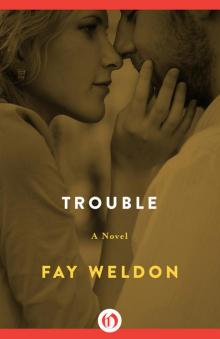 Trouble
Trouble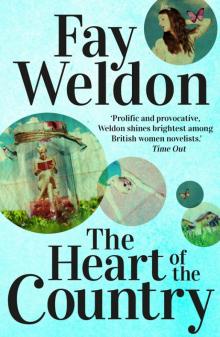 The Heart of the Country
The Heart of the Country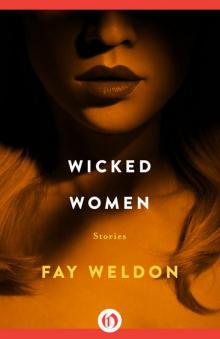 Wicked Women
Wicked Women Mischief
Mischief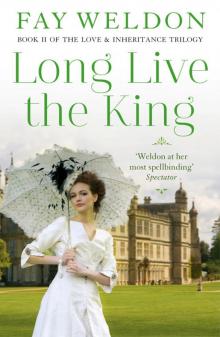 Long Live the King
Long Live the King Remember Me
Remember Me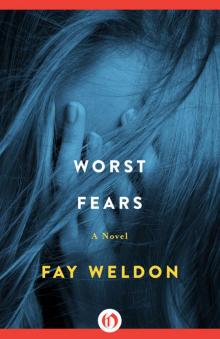 Worst Fears
Worst Fears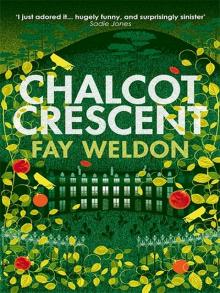 Chalcot Crescent
Chalcot Crescent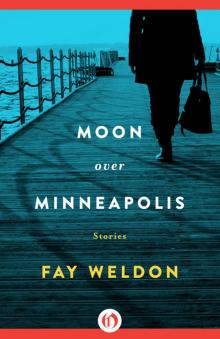 Moon Over Minneapolis
Moon Over Minneapolis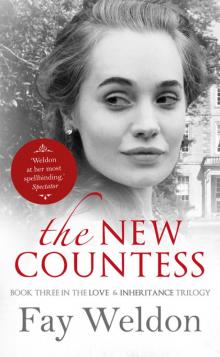 The New Countess
The New Countess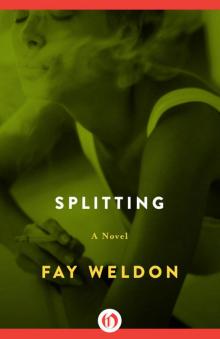 Splitting
Splitting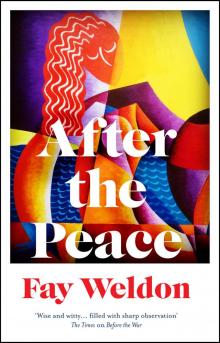 After the Peace
After the Peace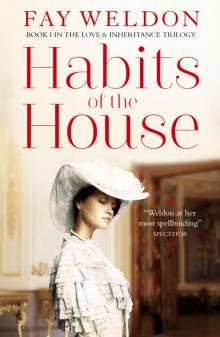 Habits of the House
Habits of the House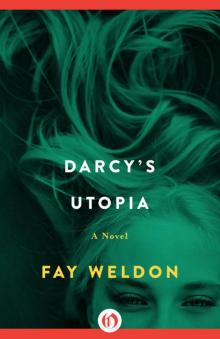 Darcy's Utopia
Darcy's Utopia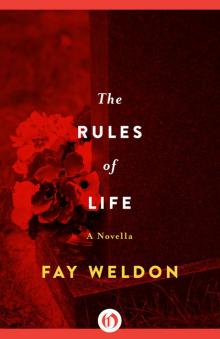 The Rules of Life
The Rules of Life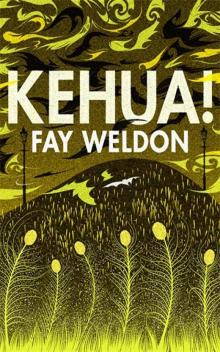 Kehua!
Kehua! Before the War
Before the War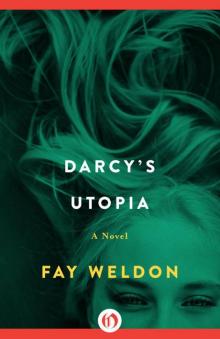 Darcy's Utopia: A Novel
Darcy's Utopia: A Novel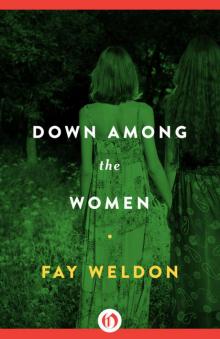 Down Among the Women
Down Among the Women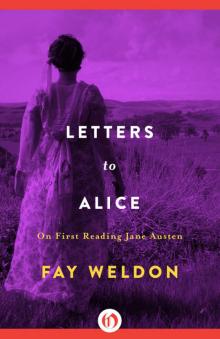 Letters to Alice
Letters to Alice 3 Great Historical Novels
3 Great Historical Novels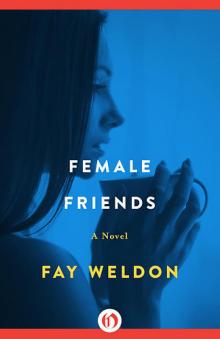 Female Friends
Female Friends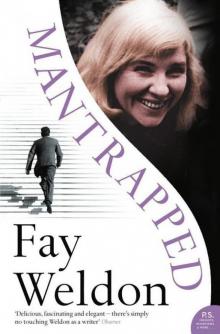 Mantrapped
Mantrapped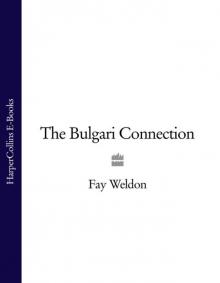 The Bulgari Connection
The Bulgari Connection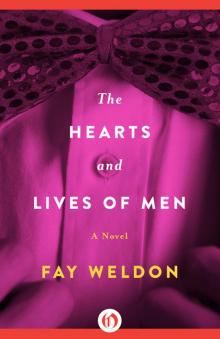 The Hearts and Lives of Men
The Hearts and Lives of Men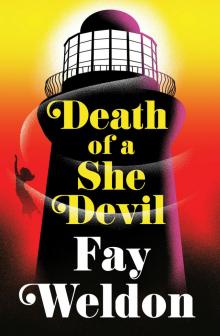 Death of a She Devil
Death of a She Devil